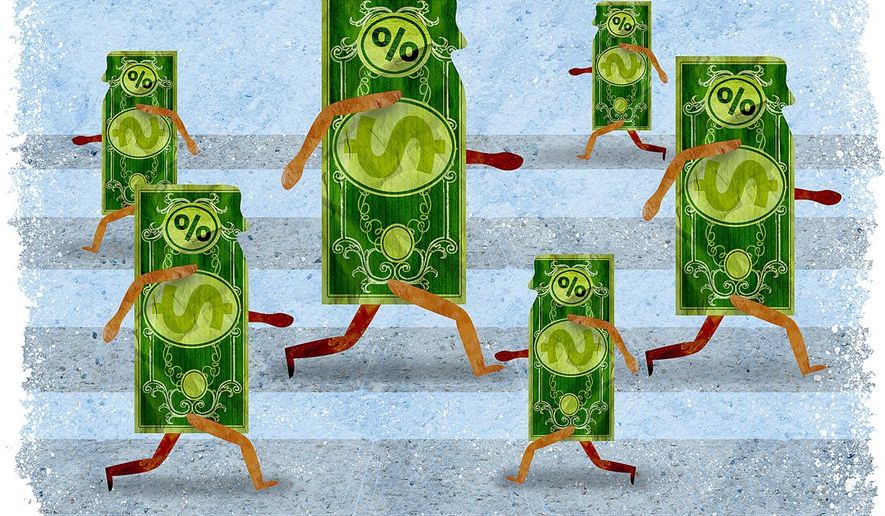OPINION:
One premise of modern-day “progressives,” is that taxes don’t have much influence on how much and when people invest, how much they work and save, or where they live. Just Google “Taxes don’t matter” and you will find scores of academic studies and news stories assuring us that taxes have little or no effect on behavior.
Boy, has the just-enacted Trump tax bill already proved these critics wrong.
With the recent Walmart announcement of an increase in their starting wage, there are now more than 100 companies that have offered bonuses and benefit hikes to their workers due to the tax cut. An estimated one million workers have benefited. This after one month.
The lines of people who waited for hours to prepay their 2018 property taxes before January 1, was another example of how tax changes influence our actions.
Americans will go to great lengths to lower their taxes.
So will politicians. The blue state governors have argued for many years that their high tax rates don’t cause people to move — even though the two highest income tax states, California and New York, have each lost about one million residents to other states over the past decade.
But now that their high tax rates are no longer tax deductible the incentive to leave is magnified and these governors like Andrew Cuomo of New York are leaping into action.
Some blue state governors and mayors are examining whether they can convert their income taxes into payroll taxes (which could be deductible off federal taxes as a business expense for employers) as a way to preserve federal deductibility. Some are even threatening to sue the federal government as if this tax deduction were a constitutional right.
California and New York officials are investigating whether their states can convert income tax payments into tax deductible charitable contributions to the state government. Good luck with that.
Why go to all this trouble if taxes don’t matter?
Then there are the charitable organizations — including the Catholic Bishops — that are complaining that the doubling of the standard deduction will lower donations to charitable causes because far fewer people will deduct gifts from their taxes. Steve Taylor of the United Way, argues that “charities are subject to the old adage, if you tax something, you will get less of it.”
Well, yes, every politician in America should hold that thought — especially when they contemplate higher taxes on work, profits, saving and so on. But in this case the higher growth from the lower tax rates are likely to lead to more income, and this higher, not lower, charitable giving, just as happened in the 1980s when tax rates fell from 70 percent to 28 percent.
The timeless economic lesson here is that taxes profoundly influence how and where we live our lives. We tax cigarettes and booze because we want people to consume less of them. There are proposals all over the country to tax soda pop, sugar, and carbon emissions so we consume or produce less of them.
So why is it so hard to accept the reality that if we lower taxes on virtuous activities — work, investment, starting a business, or saving for retirement — we will get more of these?
By the way, for the same reason that California, New York and New Jersey politicians are angry, so are government officials in China, Mexico, India, and all of Europe about America slashing its corporate tax rate from 35 percent to 21 percent. That giant sucking sound is going to be capital and jobs from all over the world coming to low-tax America.
Speaking of how taxes effect behavior, let’s see how politicians like Mr. Cuomo and California’s Jerry Brown respond to the new tax law and their now much higher effective tax rates. They can keep clinging to their religious belief that they can survive and prosper with now sometimes double the tax rates and burdens of low tax states. Or they can try to conjure up more short-term gimmicks to ease the coming tax hit.
The smarter strategy is for the blue states to stop complaining and start taking competitiveness seriously by cutting their excessive taxes and spending. New York spends twice as much per person on state and local government ($13,000 per person) than does booming Tennessee ($6,500). If they don’t, they will see right before their very eyes how taxes matter as moving vans whisk taxpayers from blue to red state America at an accelerated pace.
• Stephen Moore, a columnist for The Washington Times, is a senior fellow at the Heritage Foundation and an economic consultant with FreedomWorks. He was a senior economic advisor to the Trump campaign.




Please read our comment policy before commenting.